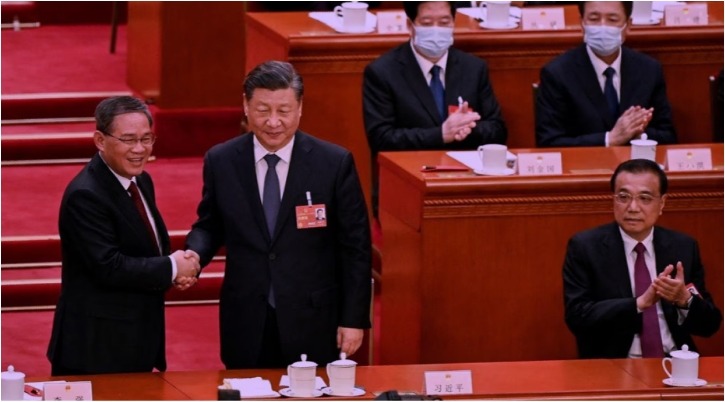
Li Qiang, the former Communist Party chief of Shanghai, has been appointed as China’s premier, the country’s second-highest post. He is a close ally of President Xi Jinping and is tasked with reviving China’s economy, which has been adversely affected by COVID-19 curbs for the last three years.
Li Qiang is perceived as pragmatic and business-friendly, but he faces a challenging task of shoring up China’s uneven recovery in the face of weak confidence among consumers and the private sector, as well as global headwinds.
These challenges have been exacerbated by tensions with the West over various issues, including the US blocking China’s access to key technologies and global companies diversifying supply chains due to political risks and the disruptions of the COVID era.
Li Qiang’s appointment comes as Li Keqiang, his predecessor, retires after two five-year terms. During Li Keqiang’s tenure, his role was seen to be diminished as Xi tightened his grip on power and steered the economy in a more statist direction. Xi is now installing a slate of loyalists in key posts, consolidating power after being unanimously elected president for an unprecedented third term.
China’s economy grew just 3% last year, and Beijing has set a modest 2023 growth target of around 5%, its lowest goal in nearly three decades. Li Qiang’s top task this year will be to beat that target without triggering serious inflation or piling on debt. The post-pandemic recovery of China has been uneven, and Li will have to work hard to restore confidence in the private sector.
Global businesses are also wary of investing in China due to various reasons, including intellectual property concerns, market access restrictions, and geopolitical risks. In response, China is trying to present a business-friendly face, including by opening up its market and increasing protections for intellectual property rights.
Li Qiang’s appointment as premier highlights Xi’s efforts to consolidate his power and steer China’s economy in a more statist direction. However, Li’s perceived pragmatism and business-friendly approach may help China address some of the challenges it faces in the current economic climate.
Nevertheless, with tensions on the rise with the West, it remains to be seen how successful Li will be in reviving China’s economy and restoring confidence in the private sector.
